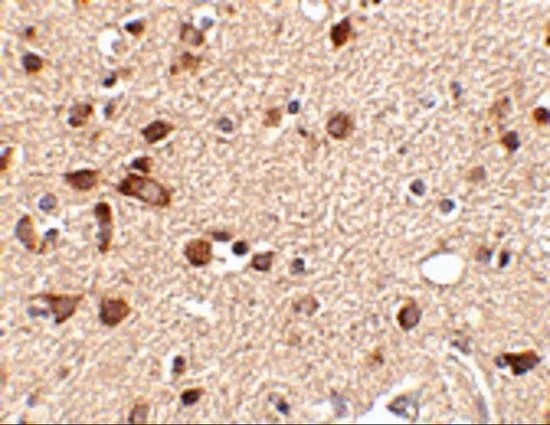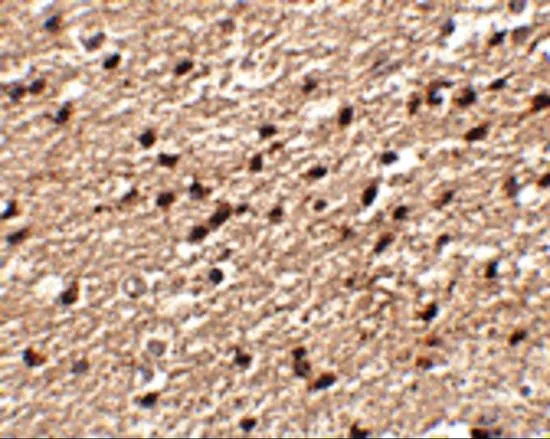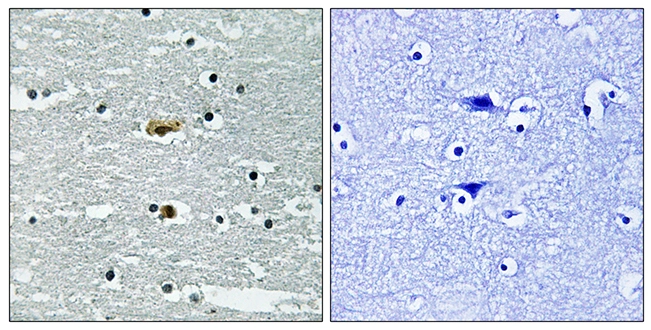
IHC-P analysis of human brain tissue using GTX86495 STK39 (phospho Ser311) antibody. The picture on the right is blocked with the synthesized peptide.
STK39 (phospho Ser311) antibody
GTX86495
ApplicationsWestern Blot, ImmunoHistoChemistry, ImmunoHistoChemistry Paraffin
Product group Antibodies
ReactivityHuman
TargetSTK39
Overview
- SupplierGeneTex
- Product NameSTK39 (phospho Ser311) antibody
- Delivery Days Customer9
- Application Supplier NoteWB: 1:500~1:1000. IHC-P: 1:50~1:100. *Optimal dilutions/concentrations should be determined by the researcher.Not tested in other applications.
- ApplicationsWestern Blot, ImmunoHistoChemistry, ImmunoHistoChemistry Paraffin
- CertificationResearch Use Only
- ClonalityPolyclonal
- ConjugateUnconjugated
- Gene ID27347
- Target nameSTK39
- Target descriptionserine/threonine kinase 39
- Target synonymsDCHT, PASK, SPAK, STE20/SPS1-related proline-alanine-rich protein kinase, STE20/SPS1 homolog, Ste20-like protein kinase, proline-alanine-rich STE20-related kinase, serine threonine kinase 39 (STE20/SPS1 homolog, yeast), serine/threonine-protein kinase 39, small intestine SPAK-like kinase, ste-20-related kinase
- HostRabbit
- IsotypeIgG
- Protein IDQ9UEW8
- Protein NameSTE20/SPS1-related proline-alanine-rich protein kinase
- Scientific DescriptionThis gene encodes a serine/threonine kinase that is thought to function in the cellular stress response pathway. The kinase is activated in response to hypotonic stress, leading to phosphorylation of several cation-chloride-coupled cotransporters. The catalytically active kinase specifically activates the p38 MAP kinase pathway, and its interaction with p38 decreases upon cellular stress, suggesting that this kinase may serve as an intermediate in the response to cellular stress. [provided by RefSeq, Jul 2008]
- ReactivityHuman
- Storage Instruction-20°C or -80°C,2°C to 8°C
- UNSPSC12352203

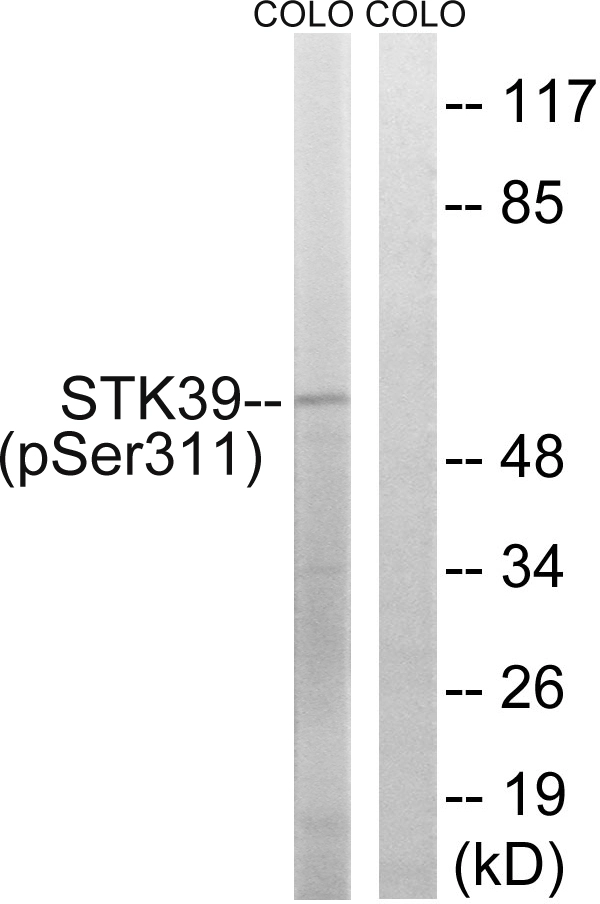
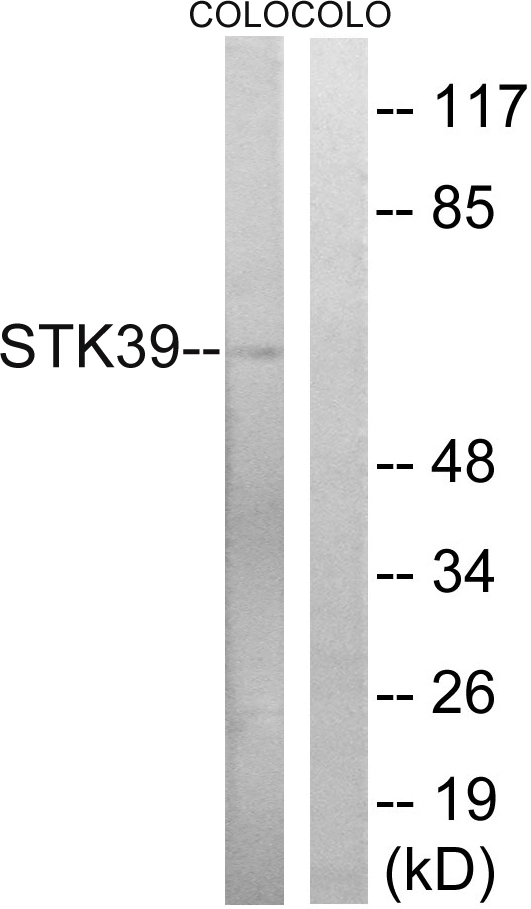
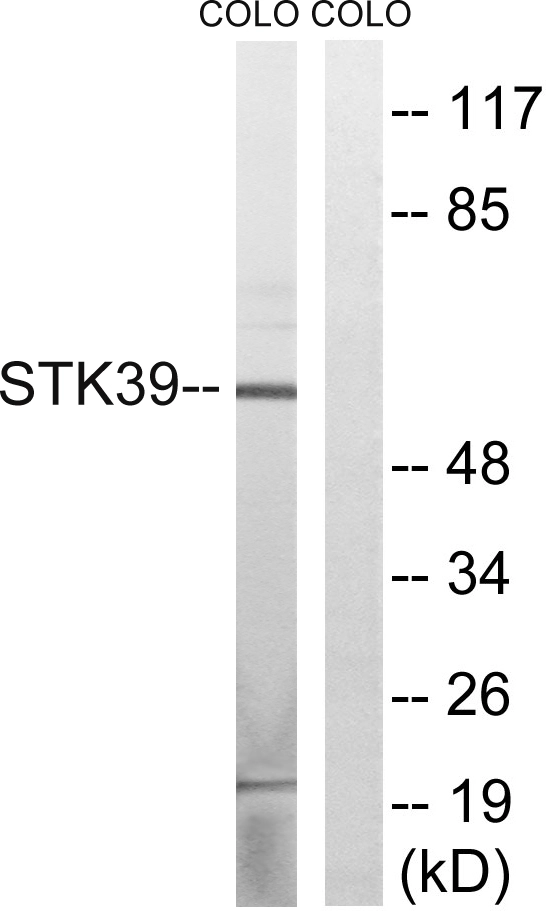
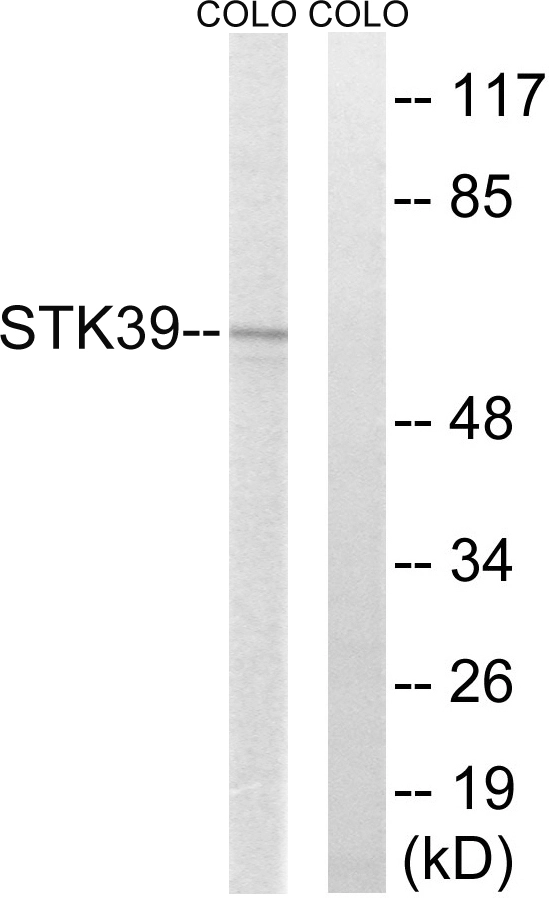


![IHC-P analysis of human colon adenocarcinoma tissue using GTX83541 STK39 antibody [3C12]. Antigen retrieval : Heat-induced epitope retrieval by 10mM citrate buffer, pH6.0, 100oC for 10min.](https://www.genetex.com/upload/website/prouct_img/normal/GTX83541/GTX83541_1526_IHC-P_w_23061420_261.webp)
![IHC-P analysis of human breast adenocarcinoma tissue using GTX83542 STK39 antibody [4E3]. Antigen retrieval : Heat-induced epitope retrieval by 10mM citrate buffer, pH6.0, 100oC for 10min.](https://www.genetex.com/upload/website/prouct_img/normal/GTX83542/GTX83542_1531_IHC-P_w_23061420_179.webp)
![IHC-P analysis of breast adenocarcinoma tissue using GTX83543 STK39 antibody [2E10]. Antigen retrieval : Heat-induced epitope retrieval by 10mM citrate buffer, pH6.0, 100oC for 10min. Dilution : 1:50](https://www.genetex.com/upload/website/prouct_img/normal/GTX83543/GTX83543_1535_IHC-P_w_23061420_693.webp)
